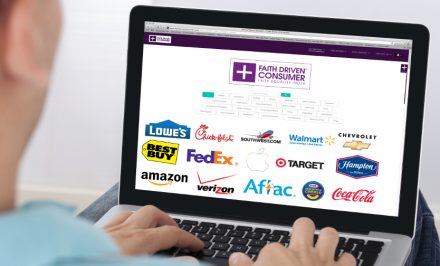Faith Driven Consumers want positive and constructive engagement—a ‘buycott’—with brands that reflect their values over the negativity of boycotting brands that are not faith-compatible.
Even as experts continue to debate their effectiveness, consumer boycotts are relatively common in our American culture that places a high value the expression of individual and community viewpoints. If nothing else, boycotts are often successful at grabbing headlines.
Some recent widely publicized boycotts—with mixed or even counterproductive results from the perspective of the organizers—include those of Ford Motor Company by Christian activists, Chick-fil-A by LGBT activists and their allies, and Whole Foods Market by pro-choice consumers. Here, the boycotts stemmed from consumer opposition to company practices or to political positions taken by the company itself or company leadership.
Representing 17% of the U.S. adult population—more than 41 million people—who spend $2 trillion annually, Faith Driven Consumers firmly hold to a biblical worldview and make their purchasing and entertainment decisions in accordance with their values. Faith Driven Consumers represent more buying power than niche markets typically targeted by brands, yet remain largely untapped by marketers.
At first glance, one might assume that Faith Driven Consumers are a powerful boycotting force—and they certainly would be, were their desires oriented in that direction. However, the surprising results from American Insights’ national survey conducted for Faith Driven Consumer show that Faith Driven Consumers prefer “buycotts” to boycotts—their preference is to positively engage with brands that they trust rather than pursue the path of boycotting companies that do not share their values.
The data show that 40% of Faith Driven Consumers prefer buycotts; only 26% prefer boycotts. Christians overall are more closely divided, preferring buycotts over boycotts by a narrow 25% to 22% margin.
What does this mean for brands? Simply that Faith Driven Consumers are more inclined to take positive rather than negative action. If a brand is compatible with their values and actively courts them, Faith Driven Consumers will eagerly choose to send their dollars in that direction.
In fact, other results from the American Insights research survey found that Faith Driven Consumers appreciate and actively seek out resources that will show them the faith-compatibility of a brand. Ninety-three percent of Faith Driven Consumers say they would find value in a faith-compatibility evaluation tool; 68% say it would be very (31%) or extremely (37%) valuable.
On the entertainment front, the survey found similar results. Ninety-seven percent of Faith Driven consumers see value in a resource that allows them to easily identify the faith-compatibility of entertainment options; 73% say it would be very (34%) or extremely (39%) helpful.


























SOCIAL COUNTER
To RSS Feed
Followers
Fans